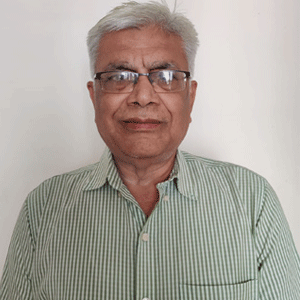
The Oil and Gas sector relies on Third-Party Inspection Agencies (TPIA) for essential oversight and verification of their business operations. These inspections done by agencies serve as impartial guardians of safety, quality, and compliance in an industry fraught with risk. Their expertise ensures adherence to stringent regulations, safeguarding against accidents and environmental harm. By conducting independent assessments, they identify issues early, mitigate risks and instill confidence among stakeholders. Their presence is vital in large-scale projects, aiding in cost-effective execution and international operations alignment.
An epitome of a reliable and reputable Third-Party Inspection Agency in this sector is Bosai Safety, known for its expertise in safety protocols, quality assurance, and regulatory compliance. From start to finish, their involvement is crucial in maintaining the integrity and reliability of Oil and Gas operations, ensuring safety, environmental responsibility and regulatory compliance throughout the industry's lifecycle.
Bosai Safety is a reputable Third- Party Inspection Agency (TPIA) that has been approved by PNGRB. They specialize in certifying Emergency Response and Disaster Management Plans (ERDMP) for midstream and downstream activities of the Oil and Gas sector in accordance with the PNGRB Regulations 2010, as amended in September 2020. Additionally, BSPL is a TPIA for Technical Standards and Specifications (T4S) audits, which include Safety Standards.
They conduct audits for a variety of activities, such as LPG storage, handling, and bottling facilities, Retail Outlets dispensing petroleum, Auto LPG and CNG, Petroleum Installation, Refineries, local City Gas Distribution networks, Liquified Natural Gas facilities, Natural Gas Pipelines (NGPL) and Petroleum Product Pipelines (PPPL).
“Our objective is to revolutionize competence in prevention, preparedness, mitigation, and management of natural as well as industrial disasters. We cater to the professional development and disaster management requirements of the PSU as well as the private sectors,” states D K Singh, CEO of Bosai Safety.
The primary challenge that Bosai Safety addresses is related to the review preparation of the document before conducting an audit at site. Prior to the audit itself, the organization being audited is responsible for gathering and organizing all relevant documents, such as amendments, equipment records, procedures, and other necessary paperwork. “Our auditors need access to these documents before they visit the site as it helps them to familiarize themselves with the situation,” says Singh.
Bosai’s objective is to revolutionize competence in prevention, preparedness, mitigation, & management of natural as well as industrial disasters
However, often, the quality of the documents produced by these organizations does not meet the required standards and the documents are not organized, leading to delays. In such cases, Bosai’s team identifies the deficiencies and informs the organization about the necessary corrections/modification needed to align with the regulations and rules. The company has adopted the guidelines as stipulated in ISO/IEC 17020:2012 to maintain its quality of audits. It maintains total Impartiality and Independence while conducting Third Party Audits with full confidentiality of the information obtained from the client.
Bosai is presently involved in conducting audits in the Oil and Gas sector, with a specific focus on ERDMP audits. In addition to their audit work, the company offers Integrity Management services, a critical component of the gas sector's management system. As part of their ongoing projects, they also conduct ERDMP management audits. Looking forward, they have outlined plans for expanding their service offerings. Initiatives have already been set in motion to conduct metal inspections of various products such as pumps, as well as to perform green audits of buildings. Furthermore, they are exploring future initiatives, which may encompass safety inspections, external safety assessments, and similar audit types.
We use cookies to ensure you get the best experience on our website. Read more...